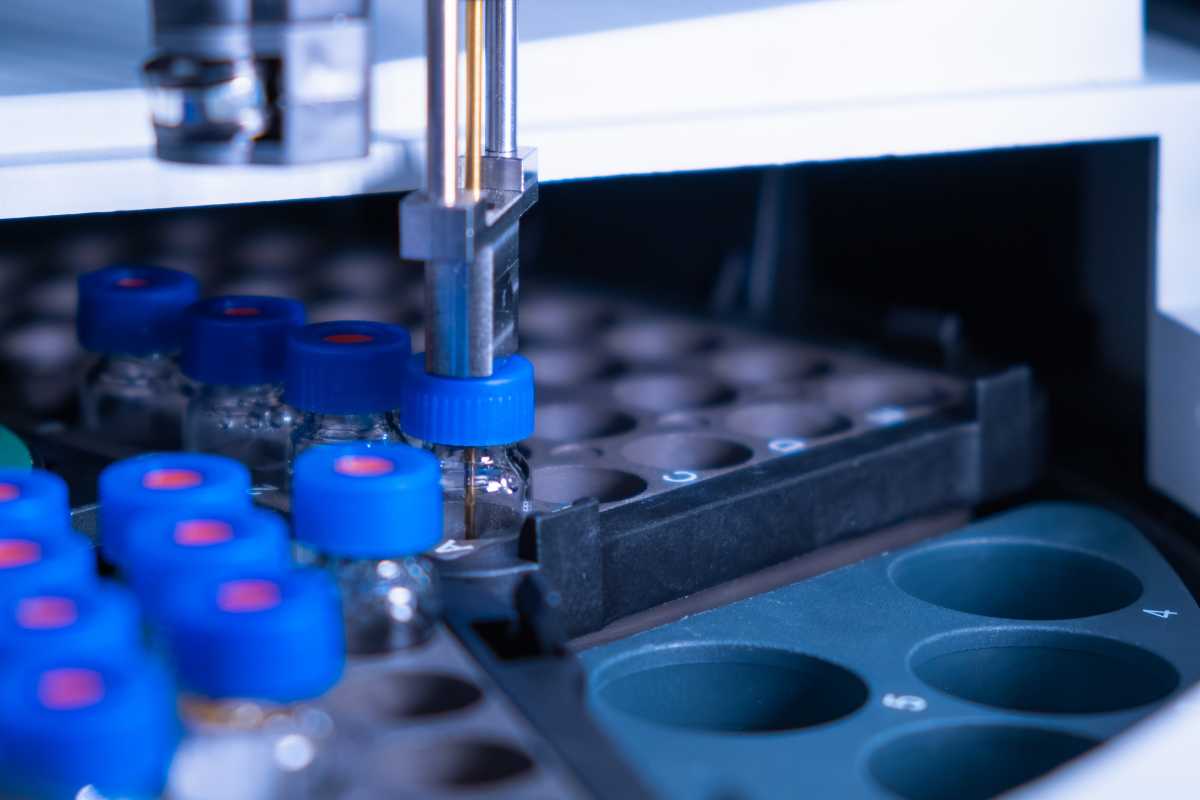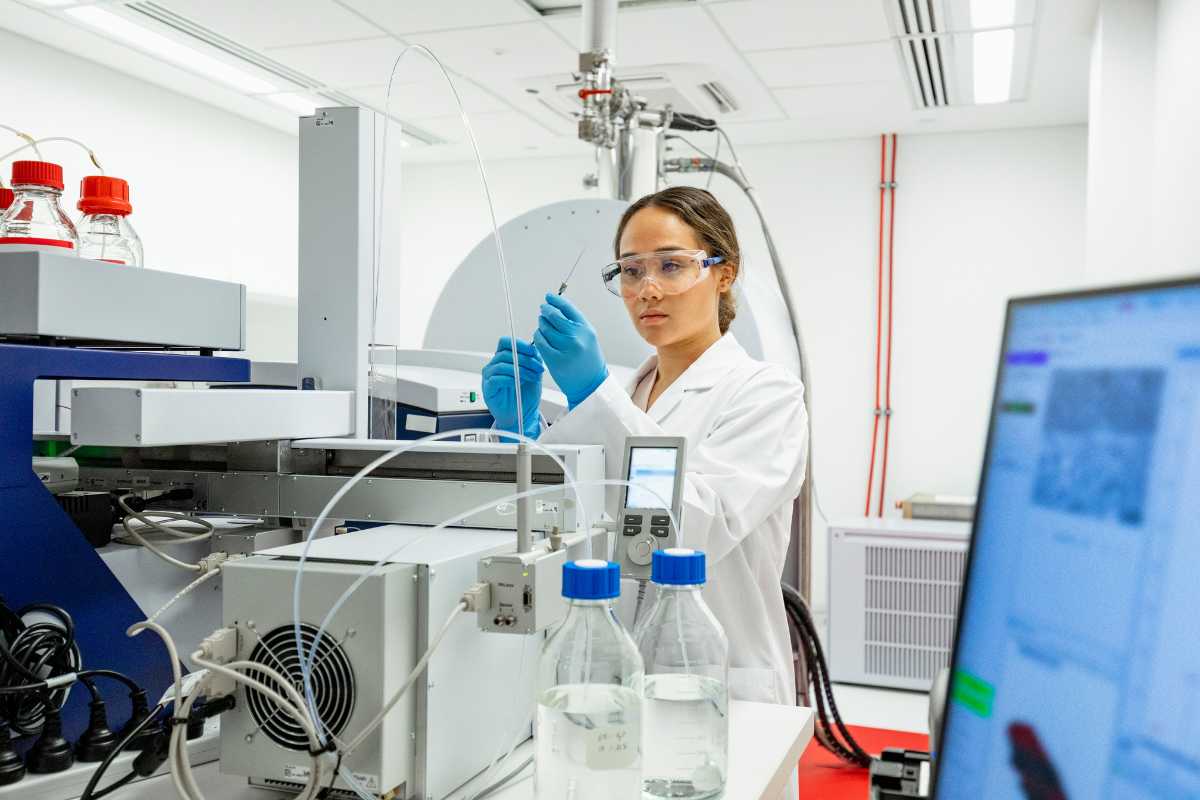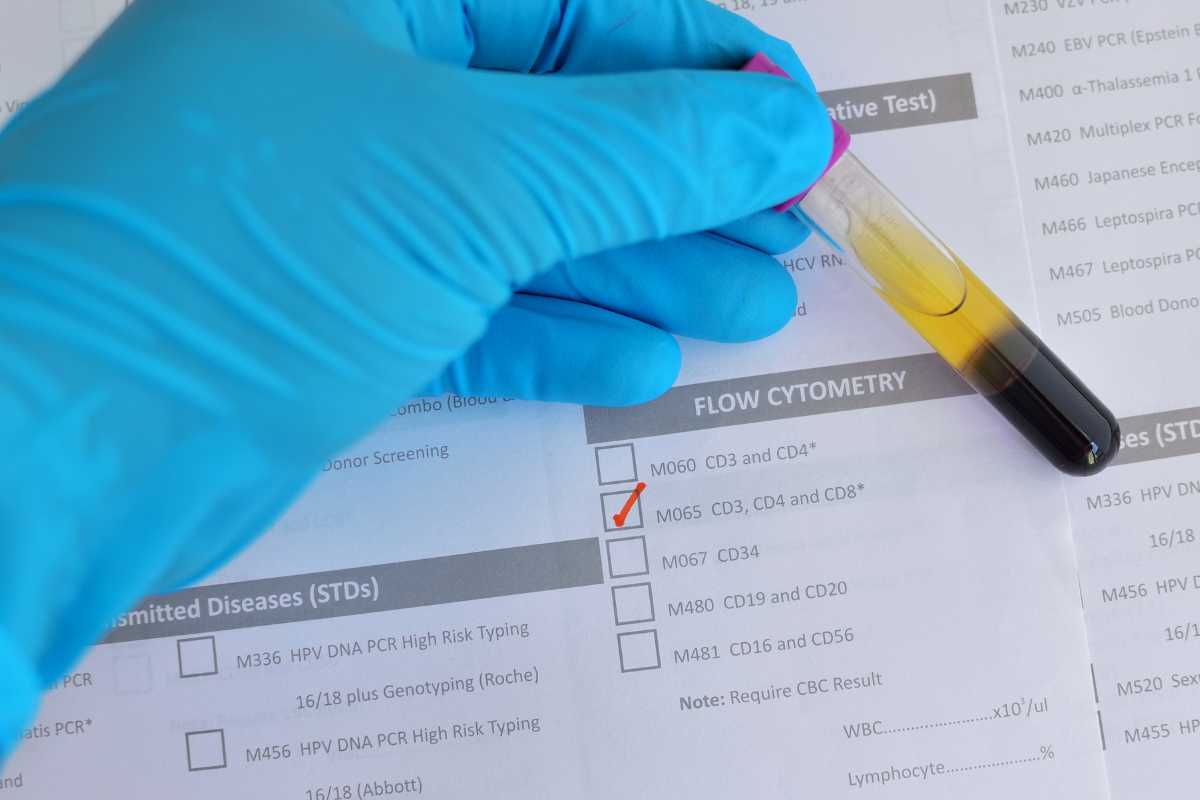Biomarker discovery is at the forefront of modern biomedical research, transforming the landscape of the proteomics industry. As the search for precise and reliable indicators of disease progresses, the role of biomarkers becomes increasingly critical.
This article delves into the importance of biomarker discovery, its methodologies, challenges, and its profound impact on the proteomics industry:
What is Biomarker Discovery?
Biomarker discovery refers to the process of identifying biological markers—molecules that indicate a particular physiological state or condition. These markers can be proteins, genes, metabolites, or other small molecules that serve as indicators of normal or pathological processes or responses to therapeutic interventions.
In the context of disease, biomarkers are used to diagnose conditions, predict disease progression, monitor treatment responses, and even forecast patient outcomes. Biomarker discovery is integral to the development of personalized medicine, where treatments are tailored to individual patients based on their unique biomolecular profiles.
The Significance of Biomarker Discovery in Modern Medicine

Biomarker discovery is critical in various aspects of healthcare, from early diagnosis to the development of new therapeutic strategies. The ability to detect diseases in their nascent stages through biomarkers can significantly improve patient outcomes. For instance, early detection of cancers through specific protein biomarkers can lead to earlier, more effective treatments, potentially saving lives.
Biomarkers play a crucial role in drug development by identifying target populations, evaluating drug efficacy, and tracking adverse effects, which streamlines the overall process. This not only improves patient care but also enhances the efficiency and cost-effectiveness of pharmaceutical research.
The Proteomics Industry and Its Contribution to Discovering Biomarkers
The proteomics industry, which focuses on the large-scale study of proteins, their structures, and functions, plays a pivotal role in biomarker discovery. Proteomics involves the identification and quantification of proteins, which are vital for understanding cellular processes and disease mechanisms. The industry uses advanced technologies such as mass spectrometry and bioinformatics tools to analyze complex protein samples and identify potential biomarkers.
Proteins are particularly valuable as biomarkers because they are the functional molecules in cells, directly influencing physiological processes. The proteomics industry, by enabling the comprehensive analysis of protein expression, modifications, and interactions, is crucial for discovering novel biomarkers that can be used in diagnostics and therapeutics.
Methodologies in Biomarker Discovery

The process involves several methodologies, each playing a role in different stages of development. Some of the key approaches include:
- Genomics and Transcriptomics:
- These fields focus on the study of genes and RNA transcripts, respectively. Genomic approaches identify genetic variations that could be linked to diseases, while transcriptomics examines changes in gene expression levels that may indicate disease presence or progression.
- Proteomics:
- As mentioned earlier, proteomics is essential in identifying protein biomarkers. Techniques like mass spectrometry, protein microarrays, and two-dimensional gel electrophoresis allow for the in-depth analysis of protein profiles in biological samples.
- Metabolomics:
- This approach involves studying the small molecules, or metabolites, within cells, tissues, or organisms. Changes in metabolite levels can provide insights into disease mechanisms and potential biomarkers.
- Bioinformatics:
- The integration of bioinformatics is critical in biomarker discovery, particularly in managing and analyzing the vast amounts of data generated by high-throughput technologies. Bioinformatics tools help in identifying patterns and correlations in data, leading to the identification of potential biomarkers.
- Clinical Validation:
- Once potential biomarkers are identified, they must undergo rigorous clinical validation. This process involves testing the biomarkers in diverse patient populations to ensure their reliability and accuracy in detecting or predicting disease.
Challenges in Biomarker Discovery
Despite its potential, identifying relevant indicators faces several challenges that must be addressed to fully realize its benefits.
- Complexity of Biological Systems: The human body is an incredibly complex system, and diseases often involve multiple pathways and mechanisms. This complexity makes it challenging to identify biomarkers that are both specific and sensitive enough for clinical use.
- Reproducibility and Validation: One major challenge is ensuring that findings are reproducible across various studies and patient groups. Validation through extensive clinical trials is necessary, but this process can be both time-consuming and expensive.
- Data Management: The large volumes of data produced in proteomics demand strong data management and analysis strategies. Maintaining the accuracy and integrity of this data is crucial for identifying reliable biomarkers.
- Regulatory Approval: Biomarkers intended for clinical use must undergo regulatory approval, which involves meeting stringent criteria for safety and efficacy. This process can be lengthy and challenging, delaying the implementation of new biomarkers in clinical practice.
The Impact of Biomarker Discovery on the Proteomics Industry

The advancement of identifying specific biological indicators significantly influences the proteomics industry, propelling innovation and growth. As personalized medicine gains traction, the demand for dependable biological markers rises, driving progress in proteomics technologies and methods.
- Technological Advancements: The pursuit of biomarker discovery has led to significant technological advancements in the proteomics industry. High-resolution mass spectrometry, improved bioinformatics tools, and enhanced sample preparation techniques are just a few examples of innovations driven by the need to identify and quantify biomarkers accurately.
- Collaboration with Pharmaceutical Companies: The proteomics industry is increasingly collaborating with pharmaceutical companies in drug development and biomarker discovery. These partnerships are mutually beneficial, as they enable the identification of biomarkers that can be used to develop targeted therapies, ultimately leading to better patient outcomes.
- Expansion of Personalized Medicine: The rise of personalized medicine, which relies heavily on biomarkers, has expanded the scope of the proteomics industry. Companies are now focusing on developing diagnostic tests and therapeutic interventions based on individual biomolecular profiles, leading to more effective and tailored treatments.
- Economic Growth: The growing demand for biomarkers in clinical diagnostics and drug development has driven significant economic growth in the proteomics industry. Companies focusing on proteomics are experiencing higher investments and revenue as the field continues to advance.
Future Prospects of Biomarker Discovery in the Proteomics Industry
The future of identifying new biomarkers looks incredibly promising, especially within the proteomics sector. With continuous technological advancements and growing partnerships among academia, industry, and healthcare providers, the rate of discovering these indicators is anticipated to increase.
- Integration of Multi-Omics Approaches: The integration of multi-omics approaches, combining genomics, proteomics, metabolomics, and transcriptomics, will likely play a crucial role in future biomarker discovery efforts. This holistic approach will provide a more comprehensive understanding of disease mechanisms and lead to the identification of more robust biomarkers.
- Artificial Intelligence and Machine Learning: The use of artificial intelligence (AI) and machine learning is set to transform the field. These technologies can process complex datasets more efficiently, uncover patterns that might be missed by traditional methods, and predict potential indicators with greater precision.
- Advancements in Mass Spectrometry: As mass spectrometry technology continues to advance, its application in biomarker discovery will become even more powerful. Improvements in sensitivity, resolution, and speed will enable the identification of low-abundance proteins that may serve as novel biomarkers.
- Personalized Diagnostics and Therapeutics: The advancement of personalized diagnostics and therapeutics is closely linked to identifying and validating new biomarkers. As these biomarkers are discovered, they will enable the development of more accurate diagnostic tests and targeted therapies, leading to improved patient care.
Conclusion
Biomarker discovery is a cornerstone of modern biomedical research, with significant implications for the proteomics industry. As the quest for reliable biomarkers continues, the proteomics industry is poised for further growth and innovation. The integration of cutting-edge technologies, collaboration across sectors, and a focus on personalized medicine will ensure that biomarker discovery remains a vital component of healthcare, leading to better diagnostics, more effective treatments, and improved patient outcomes.
In conclusion, the ongoing advancements in biomarker discovery are revolutionizing the proteomics industry, driving it towards a future where personalized medicine becomes the standard of care. The journey is challenging, but the potential rewards—both in terms of human health and economic growth—are immense. As the field progresses, identifying new biological indicators will undoubtedly continue to influence the future of medicine, providing fresh hope for diagnosing, treating, and preventing diseases globally.












